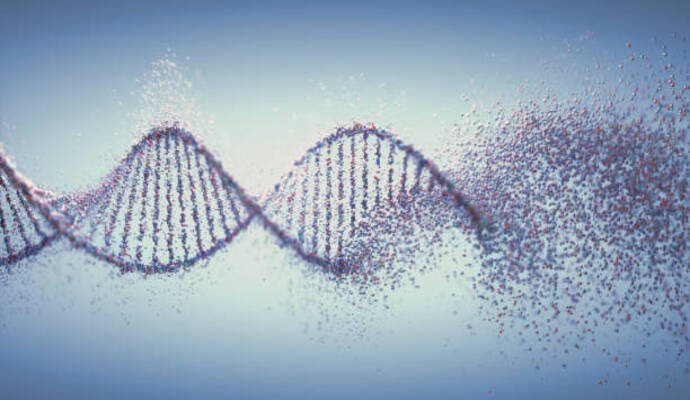CRISPR Gene Editing and Antiretroviral Therapy Eliminates HIV in Mice
A recent study by researchers at the University of Nebraska and Temple University found that CRISPR gene editing of the CCR5 and HIV-1 genes alongside antiretroviral therapy eliminates HIV in humanized mice.

Source: Getty Images
- On May 1, 2023, researchers from the Lewis Katz School of Medicine at Temple University and the University of Nebraska Medical Center (UNMC) published a study on a combined therapeutic approach that eliminated HIV in humanized mice. The study, published in the Proceedings of the National Academy of Science (PNAS), noted that CRISPR gene editing of the C-C chemokine receptor type five (CCR5) and HIV-1 genes in mice who have been on antiretroviral therapy (ART) eliminated the virus.
The researchers used HIV-1ADA-infected CD34+ NSG-humanized mice, first treating them with long-acting ester prodrugs of cabotegravir, lamivudine, and abacavir. The mice were also given a native form of rilpivirine, which — in combination with the other drugs — was the ART treatment that resulted in some viral suppression in the mice.
Beyond ART treatments, the researchers combined the medications with gene therapy. Using CRISPR–Cas9 gene editing technology, they edited the CCR5 and HIV-1 proviral DNA. As a result, the researchers eliminated the virus in over half of the mice.
More specifically, the combined approach allowed for viral suppression and helped restore CD4+ T cell levels, cells that mediate the immune response by activating B-lymphocytes, cytotoxic T cells, and more.
The treatment eliminated the replication-competent virus only after suppression and CD4+ T cell restoration. Using digital droplet polymerase chain reactions (PCRs), RNAscopes, and viral outgrowth technology, the researchers assessed samples from the mice's blood, spleen, lung, kidney, gut, bone marrow, and brain that were HIV-free after CRISPR treatment.
“Progeny virus from adoptively transferred and CRISPR-treated virus-free mice was neither detected nor recovered. Residual HIV-1 DNA fragments were easily seen in untreated and viral-rebounded animals. No evidence of off-target toxicities was recorded in any of the treated animals,” noted the researchers in the study.
“Importantly, the dual CRISPR therapy demonstrated statistically significant improvements in HIV-1 cure percentages compared to single treatments. Taken together, these observations underscore a pivotal role of combinatorial CRISPR gene editing in achieving the elimination of HIV-1 infection,” they added.
While more preclinical evidence is needed to support a clinical trial, and subsequent human data will be required for regulatory approval, the data from this study shows promising evidence for a potential HIV cure.
